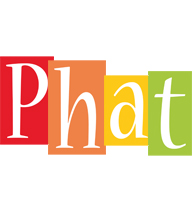Illinois just made it possible to sue people for doxxing attacks | States crack down on doxxing, but there’s still no federal law.::States crack down on doxxing, but there’s still no federal law.
For a half-second I thought this might have been a pro-anonymity law.
Illinois’ law was motivated by a doxxing attack on a business that subsequently shut down. The UpRising Bakery and Café was doxxed last year after it planned an all-ages drag brunch, which triggered threats of violence against the bakery’s owner, Corrina Sac, and vandalism of the establishment. Goldenberg told Ars that the doxxing “tore apart [Sac’s] business” and, after the bakery closed, ADL raised nearly $50,000 through a GoFundMe campaign to help her recover.
This is confusing though. How do you doxx a business and public records? Article doesn’t really go into the technical definitions of the law.
Give it 70 years and they might pass a federal law about it
Dog damn, can we not call it doxxing? Laws shouldn’t use 4chan slang.
This is the best summary I could come up with:
Illinois state representative Jennifer Gong-Gershowitz told the Daily Herald that she introduced the anti-doxxing law as “a way to hold accountable those who perpetuate hate online.”
The ADL’s ultimate goal is to see a federal anti-doxxing law passed, but right now, Congress is only taking small steps in that direction by mulling the Doxing Threat Assessment Act introduced in May.
ACLU of Illinois’ director of communications and public policy, Ed Yohnka, told the Daily Herald that his organization remained opposed because the law could infringe on free speech rights.
“Arming our national security officials and law enforcement with knowledge of how these groups operate and for identifying vulnerabilities and preventing attacks is a first step to protect our communities from harm.”
Since the Doxing Threat Assessment Act was introduced, the number of co-sponsors has doubled, suggesting the bipartisan bill is gaining popular support and has a decent chance of passing.
), said that persecuted religious groups and businesses appeared most vulnerable and "with more information, our law enforcement will be able to develop a more robust approach to the protections of Americans and their data.”
I’m a bot and I’m open source!




